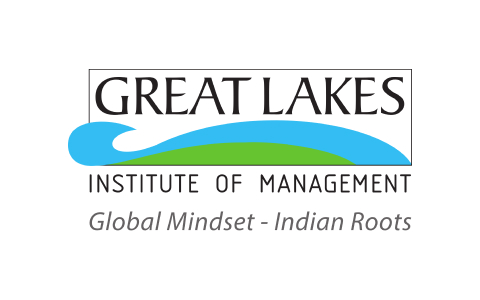Crash Course in Artificial Intelligence
Enrol for this free Crash Course in Artificial Intelligence to learn from our experts on Artificial Intelligence, Neural Networks, Deep Learning, Computer Vision Essentials, and more. Start today and enhance your AI knowledge!

Ratings
Level
Learning hours

Learners
Skills you’ll Learn
About this course
This Free Crash Course in Artificial Intelligence starts with an Introduction to AI, where you'll learn about the fundamentals of AI and how it is changing the world around us. You'll learn about the different types of AI and their applications, as well as the history of AI and where it is headed in the future.
After the introduction, the course dives into Neural Networks and Deep Learning, which are at the heart of many modern AI applications. You'll learn how neural networks work and how to build them using popular deep-learning frameworks like TensorFlow and PyTorch. Next up is Natural Language Processing, which is all about teaching machines to understand human language. You'll learn about the different techniques used in NLP, including sentiment analysis, named entity recognition, and text classification. You'll also get to work on some Natural Language Processing Projects, which will give you hands-on experience building real-world NLP applications.
Finally, the course covers Computer Vision Essentials, which is all about teaching machines to see and interpret the world around them. You'll learn about image recognition, object detection, and other computer vision techniques, as well as how to build computer vision applications using popular frameworks like OpenCV. Overall, this free crash course on Artificial Intelligence is a great way to learn about the cutting-edge techniques that are powering some of the most exciting developments in AI today. Whether you're a beginner or an experienced programmer, you'll find something to interest you in this course.
Course Outline
In this module, we will walk you through the basic concepts of introdcution to Artifical Intelligence, Neural Networks, Natural Language Processing, Computer Vision along with examples.
In this module, we will walk you through the introductory concepts of deep learning, its history. With a demonstration, we will also learn the concept of tensorflow with a demonstration. This module will also cover the fundamental concepts of deep learning and neural networks.
In this module, we will walk you through the concepts of natural language processing which onclude tokenization, stemming, lemmatization. You will also learn on the sentiment analysis and functionalities of TextBlob.
In this module, we will walk you through the Natural Language Processing projects on Sentiment Analysis
Building Recommendation Systems and Chatbot using Python
In this module, we will walk you through the concepts of computer vision essentials. You will also learn Convolution Neural Networks, Semantic Segmentation and Speech Recognition in AI. We will also demonstrate the concepts of deepfakes.
What our learners enjoyed the most
Skill & tools
69% of learners found all the desired skills & tools
Ratings & Reviews of this Course
Frequently Asked Questions
Will I receive a certificate upon completing this free course?
What are the prerequisites required to learn this Master Course in Artificial Intelligence ?
You do not need any prior knowledge except knowing what Artificial Intelligence is to learn this Master Course in Artificial Intelligence.
How long does it take to complete this free Master Course in Artificial Intelligence?
Master Course in Artificial Intelligence is a 17-hour long course, but it is self-paced. Once you enroll, you can take your own time to complete the course.
Will I have lifetime access to the free course?
Yes, once you enroll in the course, you will have lifetime access to any of the Great Learning Academy’s free courses. You can log in and learn whenever you want to.
Why is the Master Course in Artificial Intelligence Course so popular?
Artificial Intelligence is an ever-growing concept and has a lot yet to be explored. It also makes a lucrative career option with high scope.
Popular Upskilling Programs
Other Artificial Intelligence tutorials for you
Artificial Intelligence Crash Course
Artificial Intelligence (AI) is a branch of computer science that focuses on developing intelligent machines that can perform tasks that typically require human intelligence, such as learning, problem-solving, decision-making, and pattern recognition. AI is a rapidly evolving field that is transforming many industries, from healthcare and finance to retail and transportation.
Several types of AI exist, including rule-based systems, machine learning, and deep learning. Rule-based systems use a set of predefined rules to make decisions or perform tasks. Machine learning, on the other hand, involves training algorithms on large datasets to learn patterns and make predictions. Deep learning is a type of machine learning that involves training neural networks on large datasets to perform complex tasks, such as image and speech recognition. AI has many applications in various industries.
One of the key advantages of AI is its ability to process and analyze large amounts of data quickly and accurately. This makes it an invaluable tool for businesses and organizations making data-driven decisions. AI can also automate repetitive tasks, allowing human workers to focus on more complex and creative tasks. However, AI also poses several challenges and ethical concerns. One of the biggest challenges is the potential for bias in AI algorithms. Bias can be introduced into AI algorithms through the training data used to train the algorithms. For example, the AI algorithm may make biased decisions or predictions if the training data is biased towards a specific group. This can lead to discrimination and unfair treatment of certain groups.
Another ethical concern is the potential for AI to replace human jobs. As AI becomes more advanced, it can perform tasks currently performed by humans, leading to job displacement and unemployment. This could have a significant impact on the workforce and society as a whole. To address these challenges and ethical concerns, it is important for developers and policymakers to consider the potential impacts of AI and to develop ethical and transparent AI systems. This includes ensuring that AI algorithms are transparent and explainable so that users can understand how the algorithms are making decisions. It also involves ensuring that AI algorithms are fair and unbiased and designed to benefit all members of society.
In addition, organizations must invest in education and training to ensure that workers are equipped with the skills they need to succeed in a world where AI is increasingly prevalent. This includes developing new training programs and upskilling existing workers to enable them to work alongside AI systems. Overall, AI is a rapidly evolving field with the potential to transform many industries and improve the lives of people around the world. However, it also poses several challenges and ethical concerns that must be addressed to ensure that AI is developed and used responsibly and ethically. By working together to address these challenges, we can ensure that AI continues to drive innovation and progress while benefitting society.





































